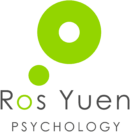Couples therapy is a powerful tool used to help two people in a relationship improve communication, build trust and feel truly known to one another. In a world that is increasingly fractured, having a supportive partner who understands you and has your back is worth striving for.
But if you are considering couples therapy, or booked in to start soon, it’s important to know what to expect – and how to get the most out of it. Your psychologist will guide the process, but you can maximise the value of your sessions by considering the key concepts outlined below.
For personalised advice, contact our team at Ros Yuen Psychology today.
How Does Couples Counselling Work?
Couples therapy, or couples counselling, looks different from one partnership to the next. It may involve a single session or multiple sessions, depending on the needs of you and your partner.
At Ros Yuen Psychology, I aim to help couples develop new skills and strategies for navigating their relationships. This process involves zooming in on specific issues you may be facing. Some challenges I often encounter in couples counselling include angry and resentful attitudes, infidelity and trust issues, emotional abuse or narcissism, depression or anxiety, porn addiction, and a lack of time for couple activities.
I utilise scientifically supported methods, such as the Gottman Method, to help you reduce conflict, resentment and loneliness and increase levels of intimacy, appreciation and stability in your relationship. I will do this by teaching you relationship skills to:
- Communicate your needs effectively
- Solve problems together – and learn the difference between solvable issues and perpetual issues
- Understand and appreciate each other’s shared values, interests and hoped-for dreams
- And importantly, to make room for differences.
Before I start, I always assess the relationship dynamic for any potential risk factors relating to inter-partner violence (IPV). These factors have to be carefully assessed and monitored for couples counselling to commence.
Maximise the Value of Your Sessions
Often when couples turn to counselling, they see it as a last-ditch effort to mend their relationship. At this point, they are feeling exhausted, cynical, and reluctant to try new things. But they can only move their relationship forward by devoting their best efforts to this process.
Let’s explore some key concepts I encourage my customers to weigh up before, during and after relationships counselling.
Preparation Is Key
Before you book your first session, it’s a good idea to research counselling methods and survey the different services in your area. You’ll need to find a therapist you both feel comfortable with.
You may also want to set aside some time with your partner to discuss potential goals and objectives for your sessions. Your goal here isn’t to create the perfect shared vision, but to unlock ideas and boost each person’s motivation to contribute.
This way, you can avoid a scenario where your first comment in the session is, “I don’t know what to say”, or where you immediately raise the last fight or conversation you had with your partner. Without a broader plan to start with, you might end up lost in the tension, or going around in circles.
Focus on Improving Yourself
At this point, you may also find it helpful to privately explore your own goals for therapy, and actions you might take to enrich the relationship.
This sort of self-reflection can be difficult; it may be tempting to instead focus on where your partner is going wrong, or external factors influencing your happiness. But ultimately you can’t change or control your partner, or change or control many of the outside forces that affect our lives.
If you gravitate towards blaming your partner – or external factors – for problems in your relationship, you may be less likely to devote the required effort to correcting the wider patterns affecting you both.
Be Patient and Open-Minded
In addition to setting goals, both as a couple and for yourself, it’s worth spending time ahead of your sessions cultivating a positive mindset.
This will mean being patient and open-minded, both towards the counsellor facilitating the sessions and your partner. You may be asked to consider new ideas, or try new exercises outside of your comfort zone.
The challenge here is not only to figure out what changes need to be made, but why things are the way they are. You and your partner will be asked to think differently about your problems, and excavate some unhelpful assumptions about each other. It takes time and effort, as all good things do!
Be Honest
You will also set yourself up for success by committing to honesty. This may be challenging, as people often feel vulnerable and insecure speaking to a therapist – especially with their partner in the room. They may try to conceal their flaws, or pretend they are an ideal partner.
This instinct, while understandable, can limit the success of the therapy and harm your relationship. If you focus on being yourself and sharing your honest thoughts, you are more likely to build intimacy and trust with your partner and forge a more authentic connection.
Explain, Listen, and Ask Questions
It’s not only important to consider what you are saying in therapy, but how you say it – both with your words and body language.
You and your partner will get the most out of your sessions by taking turns to speak and listen. Where possible take a moment to think about what you want to say, carefully explain your thoughts, then actively listen to your partner when they share their perspective, without defensiveness.
Also don’t be afraid to speak up and ask questions – even the tough ones. This will help you clarify what your partner is thinking, and to unveil new levels of meaning and intention behind your interactions.
Booking Couples Counselling in Adelaide
Many of the difficulties that threaten the survival of relationships can be resolved with the right help, especially if tackled early. Yet, it is not unusual for troubled couples to wait many years, in part because couples counselling seems scary, intimidating and impractical.
The ideal scenario is for both individuals to agree to seek professional help together. However, it is not uncommon for one partner to be reluctant. Even then, it can be very helpful for the other individual to seek help first, as the changes they make can have a domino effect on the relationship.
As a highly qualified and experienced psychologist, I can assist you with individual and/or couples counselling, depending on your unique needs.




